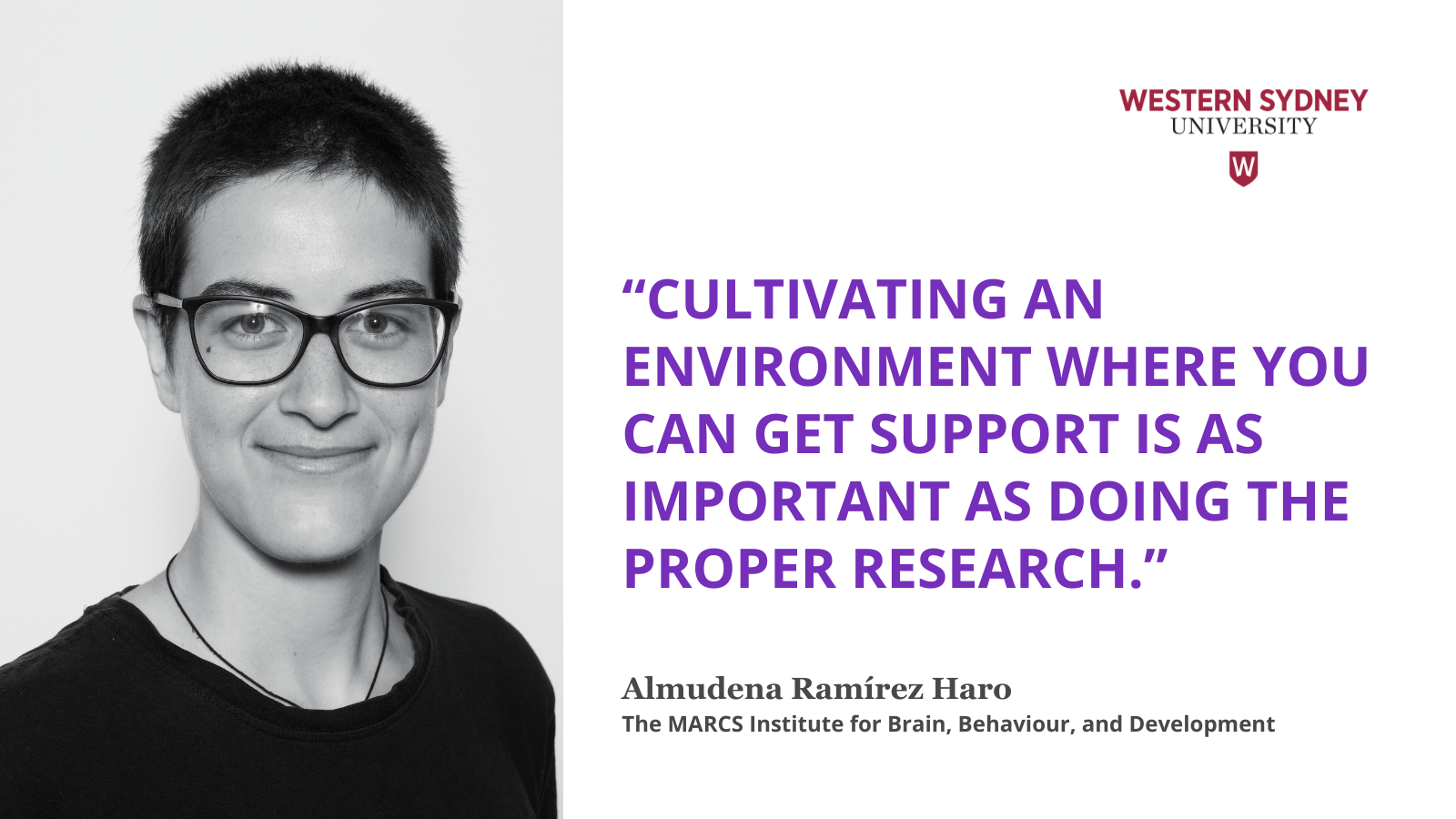What’s Your Research Story - Almudena Ramírez Haro

In “What’s Your Research Story”, we delve into the diverse talents and achievements within MARCS Institute, celebrating milestones and innovation.
This edition, in conjunction with Western Research Week 2024, features PhD Candidate, Almudena Ramírez Haro. Almudena’s research focuses on understanding the neural dynamics involved in object recognition in visual perception, and her work will ultimately be contributing to knowledge in neuroscience.
Besides her research work, Almudena is actively involved in committees, helping to forge relations and raise awareness on important issues within the academic community.
Join us as we learn more about Almudena’s journey as a research student and her thoughts on developing the necessary skillsets for future readiness.
Can you share what it’s been like pursuing a PhD at MARCS in Sydney, Australia? How has this experience influenced your research journey and goals?
Pursuing a PhD at MARCS was a very easy decision because it meant working on my dream project. However, moving to another country with a very different culture for the first time and leaving home behind was very challenging. Thankfully, I had the support of my supervisors and peers, who made the process smoother and are still making the experience enjoyable. I am halfway through my PhD journey, and I cannot be happier – the research experiments I’m conducting and all the research-related experiences I am having are incredibly fulfilling.
When I arrived at MARCS, I had a broad project description, and the first few months of reading and figuring out what my thesis could focus on were extremely helpful. Now that I am studying a topic that I am passionate about, I am confident about finding an interesting area within broader research topics in the future.
My goals are more or less the same as before: keep researching. However, now that I’ve had the opportunity to learn about what other labs are working on and to get to know more people, I have a clearer idea of my next steps after my PhD.
How do you envision the field of Cognitive Neuroscience making an impact in the next decade?
With the normalisation of AI, everything we can study in Cognitive Neuroscience is relevant. The applications of the field go beyond biological brains, but also artificial ones and machines, which is very interesting. And this goes both ways: neuroscientists are continuously developing new methods, especially using machine learning techniques. I find these new methods beneficial for looking into neural processes that were difficult to study before.
I think overcoming the challenges of cognitive neuroscience by making use of AI tools will not only result in a better understanding of what we already know but will broaden the field. Cognitive Neuroscience will make an impact in the areas that we are already targeting while bringing to the table new matters to look at in the future.
What advice will you give to students who are starting their research journey? How can they develop the necessary skillsets for future readiness?
Something that has helped me greatly in my research journey is building a community with students who are going through the same experience as I am. Cultivating an environment where you can get support is as important as doing the proper research.
I find that volunteering and networking are two great ways to start, especially networking with people who are in similar positions. Another way is to put yourself out there through committees to contribute to the broader academic culture. Being involved in committees provides a platform to learn and develop valuable skills that may not necessarily relate to your research but will definitely make you a better and more confident researcher in the long run.
****
Almudena is also featured in the Australasian Cognitive Neuroscience Society newsletter (June 2024). Read more about Almudena’s other research interests here.



